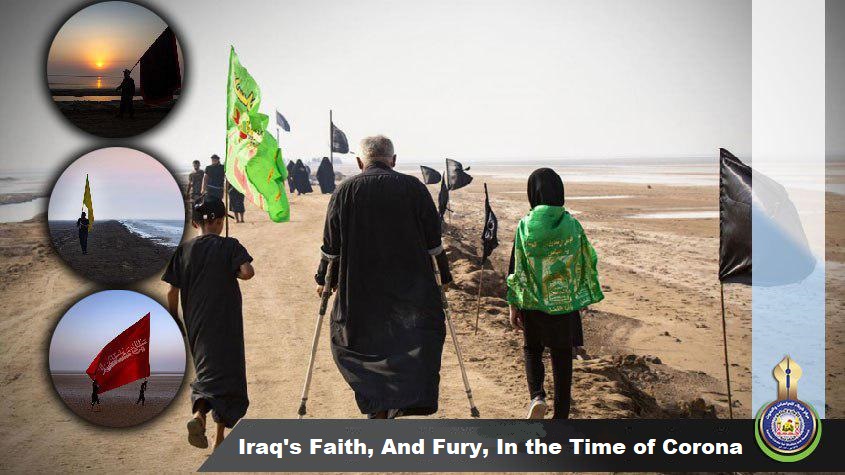For millennia, Iraqis have turned to religion as they grieve their dead. According to Timesofindia.indiatimes.com, this year, a pandemic and the killings of hundreds of young protestors have lent greater sorrow to the Shiite mourning ceremonies of Ashura.
"Iraq has been through so much misery -- from war to torture to imprisonment to forced emigration and now the coronavirus pandemic," said Sheikh Hassan Dhakeri, a cleric in Iraq's shrine city of Karbala.
Iraq's majority Shiite Muslims are marking a month of mourning for Hussein, the Prophet Mohammed's grandson, killed by followers of Caliph Yazid in the seventh century.
Since then the country has been through relentless cycles of sadness. Many turn to religion for solace, Dhakeri said. Every year, thousands of Shiite Muslims mark Ashura with a pilgrimage to Imam Hussein's resting place inside a glittering shrine in the holy city of Karbala.
Visitors are often so moved by the story of his death that they sob uncontrollably at the mausoleum's golden gates.
"When we make this pilgrimage, and we're carrying all our worries and tragedies and needs, we begin to cry," Dhakeri said. "That is the first step to having our prayers answered."
In the last century alone, Iraq underwent several bloody changes of power that culminated in the rule of Saddam Hussein.
Iraqis lived through war with Iran in the 1980s, crippling international sanctions in the 1990s and the US-led invasion of 2003, which brought sectarian infighting and the fight against the Islamic State group.
Hundreds of thousands of Iraqis fled their homeland and those who stayed endured violence and the destruction of critical infrastructure, healthcare and access to education.
"Iraq is a sad country. From Saddam's time until now, we haven't known joy," said Mohammad Karbalai, a 31-year-old religious chanter from Karbala.
Every year, he performs poetic eulogies or emotional retellings of Hussein's death, a story Shiites see as representing the ultimate injustice, but also triumph over death.
"People feel that there is injustice but there is also good -- and that in the end, all throughout history, good always wins," Karbalai told AFP. "Imam Hussein is the treatment for these wounds," Karbalai told AFP.
Iraqis are also mourning more than 8,000 loved ones who have lost their lives to Covid-19, among nearly 300,000 confirmed cases in the country.
In a bid to stem the spread of the virus, Iraq has kept its borders closed to non-residents and urged citizens not to attend large gatherings.
However, tens of thousands of Iraqis are estimated to have attended Ashura rituals in Karbala. Even higher numbers are expected to attend Arbaeen in early October, marking the close of the traditional 40-day grieving period since Hussein's death.
"This year is an exceptional year because of the virus," said Riyad Salman, who heads the Department of Rituals at Karbala's shrines.
The slender, blue-eyed Iraqi is usually responsible for organising thousands of prayer groups during Ashura.
This year, he led 30,000 shrine workers distributing medical masks, taking pilgrims' temperatures and spraying disinfectant mist over crowds of fervent worshippers.

